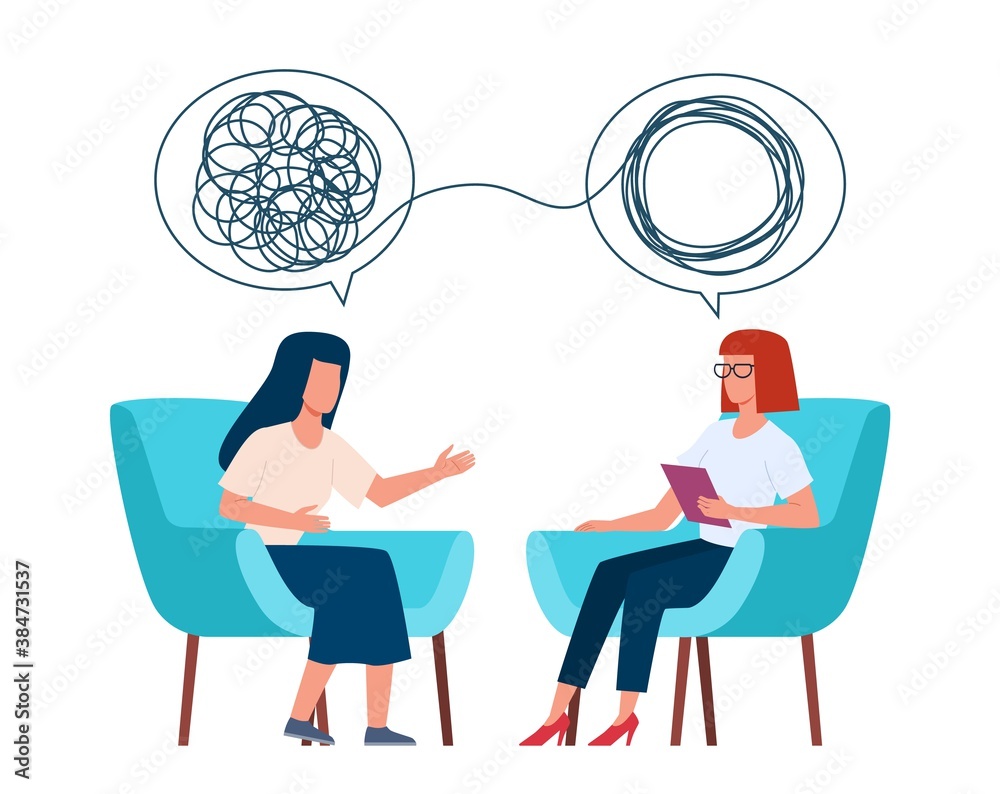Psych Therapy: A Comprehensive Overview to Strategies and End Results

Cognitive-Behavioral Therapy
Cognitive-Behavioral Therapy (CBT) is a widely used psychotherapeutic strategy that focuses on identifying and modifying dysfunctional thinking and behavior patterns. Established in the 1960s by Aaron T. Beck, CBT incorporates cognitive and behavioral concepts to attend to numerous mental wellness problems, consisting of anxiety, stress and anxiety, and stress-related conditions. The premise of CBT is that maladaptive thoughts add to emotional distress and maladaptive habits. By restructuring these thoughts, individuals can accomplish substantial improvements in their emotional wellness and day-to-day performance.
Techniques such as cognitive restructuring, direct exposure treatment, and skill-building exercises are commonly used. Cognitive restructuring involves challenging and altering negative idea patterns, while direct exposure therapy aims to decrease worry and anxiousness via steady direct exposure to been afraid objects or situations.
Evidence-based research study supports the efficacy of CBT for a wide variety of psychological conditions - Best Psychologist in Delhi. Its emphasis on ability acquisition and self-help strategies equips clients to proceed progression independently after treatment concludes. The flexibility and effectiveness of CBT have made it a cornerstone in modern psychotherapeutic practice
Psychodynamic Techniques
Rooted in the very early concepts of Sigmund Freud, psychodynamic techniques concentrate on exploring the subconscious mind and its impact on behavior and emotions. These approaches aim to discover covert ideas and sensations that may be driving maladaptive behaviors and emotional distress. Central to this method is the principle of internal conflict, usually coming from unsettled previous experiences, especially those from youth.
Therapists making use of psychodynamic strategies employ numerous crucial techniques, consisting of totally free organization, where people are encouraged to talk easily to disclose unconscious material, and dream evaluation, which interprets the unexposed content of desires. Additionally, the expedition of transfer and countertransference characteristics within the therapeutic partnership is important. These communications can supply insights right into the patient's inner world and relational patterns.
Psychodynamic therapy is normally longer-term contrasted to other methods, offering a deep and extensive understanding of the individual's subconscious. Research indicates that it can be especially efficient for complex psychological wellness concerns, such as character problems and chronic anxiety. By cultivating self-awareness and psychological understanding, psychodynamic therapy looks for to bring subconscious product to awareness, making it possible for people to attain enduring and significant change in their lives.
Humanistic Strategies
Structure on the foundations laid by psychodynamic approaches, humanistic strategies supply a distinct point of view concentrated on specific potential and self-actualization. Stemming in the mid-20th century, these techniques prioritize the fundamental goodness and growth potential of people, stressing an alternative sight of human experience. Secret numbers such as Carl Rogers and Abraham Maslow have actually dramatically influenced this restorative technique, which incorporates browse around this web-site techniques like client-centered treatment and Gestalt therapy.
Client-centered treatment, established by Rogers, plays an essential function in humanistic techniques. It counts on the specialist providing an environment of genuine positive respect, compassion, and harmony. This promotes a safe space for customers to discover their feelings and experiences without judgment, helping with self-discovery and personal development. The specialist's role is more of a facilitator than an authority, encouraging clients to harness their inner sources for recovery.
Gestalt treatment, another crucial humanistic method, emphasizes present moment recognition and the combination of mind and body. look at more info By concentrating on the "present moment," clients obtain better understanding right into their current emotions and actions. Strategies such as role-playing and assisted visualization are typically utilized to help clients get a much deeper understanding of themselves, eventually bring about enhanced self-awareness and fulfillment.
Integrative Treatments
Integrative treatments represent a synthesis of numerous restorative strategies customized to satisfy the unique needs of each client. This approach acknowledges the complexity of human psychology and the complex nature of mental wellness issues. By incorporating aspects from various schools of psychiatric therapy-- such as cognitive-behavioral therapy (CBT), psychodynamic therapy, and humanistic strategies-- integrative therapies supply a more alternative and adaptable treatment paradigm.
Professionals of integrative therapy examine each client's details requirements, symptoms, and individual history to create a customized therapy plan. This customized approach boosts the potential for restorative success by resolving the source of emotional distress and advertising overall wellness. Techniques might include mindfulness exercises, cognitive restructuring, and psychological handling, each selected to target various aspects of the client's concerns.
Furthermore, integrative therapies highlight the healing partnership, viewing the client-therapist bond as an essential part of reliable treatment. This partnership promotes an encouraging atmosphere where clients feel secure to check out and resolve their worries. The flexibility of integrative therapies makes them appropriate for a wide series of conditions, including anxiousness, clinical depression, injury, and social troubles, thereby boosting their applicability and effectiveness in varied scientific settings.

Determining Therapy Outcomes
Examining the performance of psychotherapy is crucial for both medical professionals and clients to ensure that the treatment is generating the desired outcomes. To achieve this, different approaches and tools are used to gauge treatment end results methodically. Standardized assessment instruments, such as the Beck Anxiety Inventory (BDI) and the Generalized Anxiousness Disorder 7 my review here (GAD-7), offer quantitative information on symptom intensity and adjustments with time.
In addition to standardized tools, qualitative methods like client self-reports and scientific meetings provide beneficial insights into the personal experiences and viewed progression of customers. On a regular basis scheduled analyses, typically at the beginning, omphalos, and end of treatment, help in tracking the trajectory of improvement or identifying areas requiring modification.
Result dimension is not restricted to signs and symptom decrease; it also includes functional improvements in day-to-day live, such as far better interpersonal relationships, raised job productivity, and enhanced total health. Modern advancements in digital health and wellness have introduced mobile apps and on the internet platforms that facilitate real-time surveillance and feedback, further improving the evaluation procedure.
Eventually, an extensive approach to measuring therapy end results makes sure that restorative interventions work, efficient, and customized to satisfy the private needs of customers, thereby enhancing the general therapeutic experience.
Verdict
Psychiatric therapy supplies a multifaceted selection of strategies targeted at attending to specific psychological wellness concerns and enhancing total wellness. Cognitive-Behavioral Therapy and psychodynamic techniques target inefficient thoughts and subconscious influences, respectively. Humanistic techniques concentrate on individual growth and self-actualization, while integrative therapies integrate numerous approaches for customized treatment plans. Reviewing therapy outcomes via qualitative methods and standard evaluations makes certain an extensive understanding of performance, eventually leading customers toward withstanding mental health enhancements.
From the structured strategy of Cognitive-Behavioral Therapy (CBT) to the deep exploration of the subconscious in psychodynamic treatment, each technique brings special advantages. Its focus on ability purchase and self-help methods encourages customers to continue progression separately after therapy ends (Best Psychologist in Delhi). Secret numbers such as Carl Rogers and Abraham Maslow have substantially influenced this healing strategy, which incorporates techniques like client-centered therapy and Gestalt treatment
